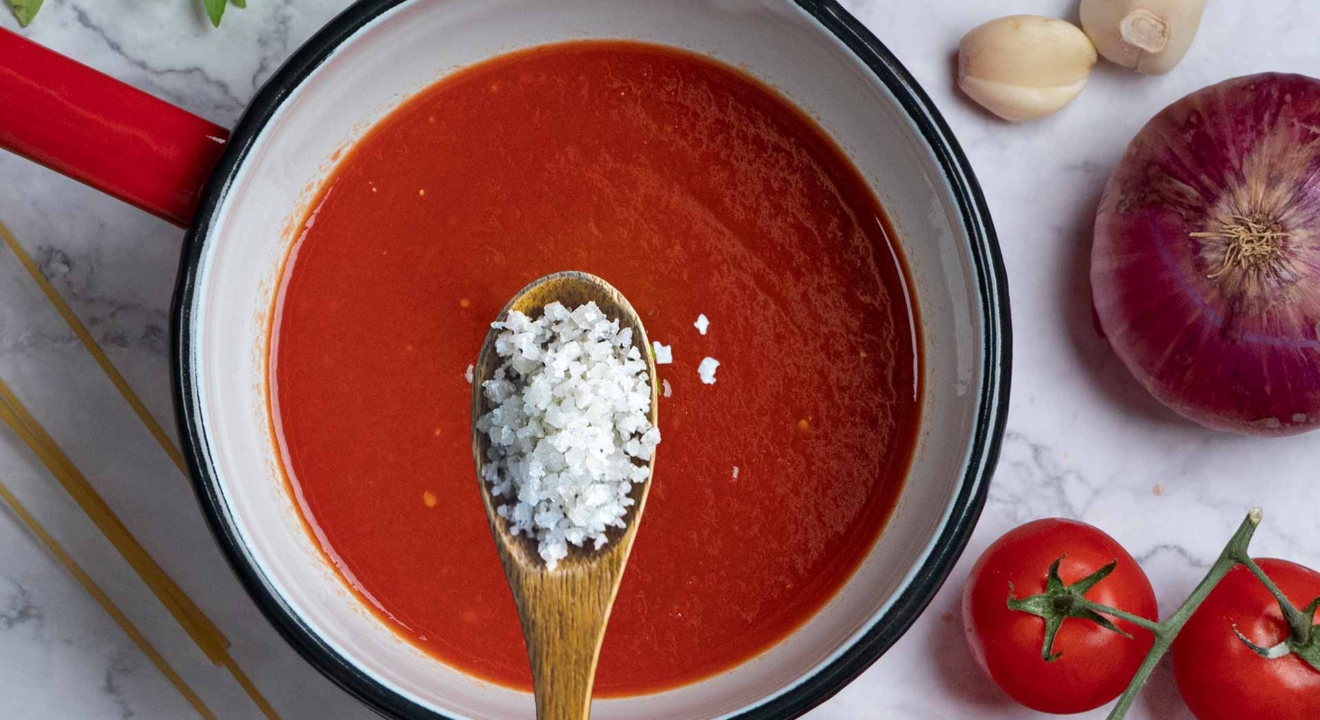How to fix over-salted food
ARGIRO BARBARIGOU

How do you fix over-salted food?
Accidentally added too much salt to your dish? Don’t worry! There are several proven ways to save it without having to start over. These practical solutions, drawn from experience, can help restore balance and rescue your meal.
Potato Method
The most well-known trick is to add a whole, peeled potato to the pot while the dish simmers. The potato absorbs some of the excess salt during cooking. However, be cautious: simmering can reduce the liquid, intensifying the salty flavor. Also, the added starch may affect the dish’s texture and taste, depending on the dish.
Alternatively, you can try:
Rice, bulgur, or couscous, their sweetness balances out the saltiness.
Stale bread: Add a piece of stale bread during cooking and remove it at the end.
Vegetables Method
If you have extra vegetables, cook a salt-free batch of the dish and combine it with the over-salted portion. This dilutes the saltiness while preserving the original flavors. Good options include:
Good options include:
- Leafy greens (like spinach), which absorb salt and soften sharp flavors
- Sweet vegetables such as carrots, broccoli, or cauliflower, which bring balance through their natural sugars
If the problem is in the sauce, you can dilute it with:
- Unsalted vegetable or meat stock
- Tomato sauce
Simmer the sauce again until it reduces to the desired consistency. Only add a small amount of salt at the end, if needed.
Acidity
In many recipes, especially stews or braised dishes, adding acidity can help. Use lemon juice in a lemon-based dish or vinegar in a tomato or wine-based stew to counteract the salt and round out the flavor.
Dairy can tone down excessive salt. Ingredients like butter, cream, yogurt, or cream cheese are effective, depending on the dish. Cream and yogurt, in particular, quickly mellow out overpowering saltiness.
Sides
If the dish is too salty to fully correct, serve it with unsalted side dishes. Sides like mashed potatoes, plain rice or a fresh salad.
If You Over-Salted Meat Before Cooking
Wipe off excess salt using a brush or paper towel. If needed, quickly rinse the meat and then dry it very well before cooking.
Add a piece of unsalted butter on top of the hot meat. The butter will melt and soften the salty taste.
You can also cover it with a salt-free sauce or pair it with starchy, unsalted sides like mashed potatoes or plain pasta.
Tips to prevent over-salting altogether:
- When cooking stews or braised meat, salt lightly at the beginning. Wait until the dish is nearly finished to adjust seasoning.
- Commercial refined salts can be inconsistent in flavor. Sometimes you keep adding salt, then suddenly the dish turns overwhelmingly salty. Natural sea salt is more balanced and flavorful without being aggressively salty.
- Be cautious with salty ingredients like soy sauce. They often replace the need for additional salt.
- When cooking with fresh mussels, never salt the dish until the end. Mussels release briny seawater as they cook.
- The same applies to fresh octopus. It is naturally flavorful and rarely needs extra salt.
Always remember that in cooking, restraint leads to better flavor. Excess seasoning, whether salt, herbs, or spices, can overwhelm a dish. A little goes a long way.